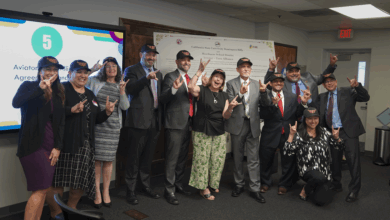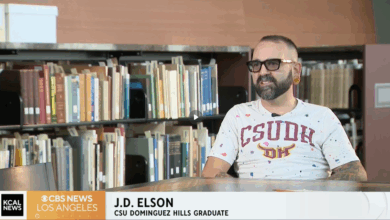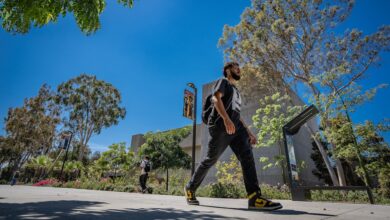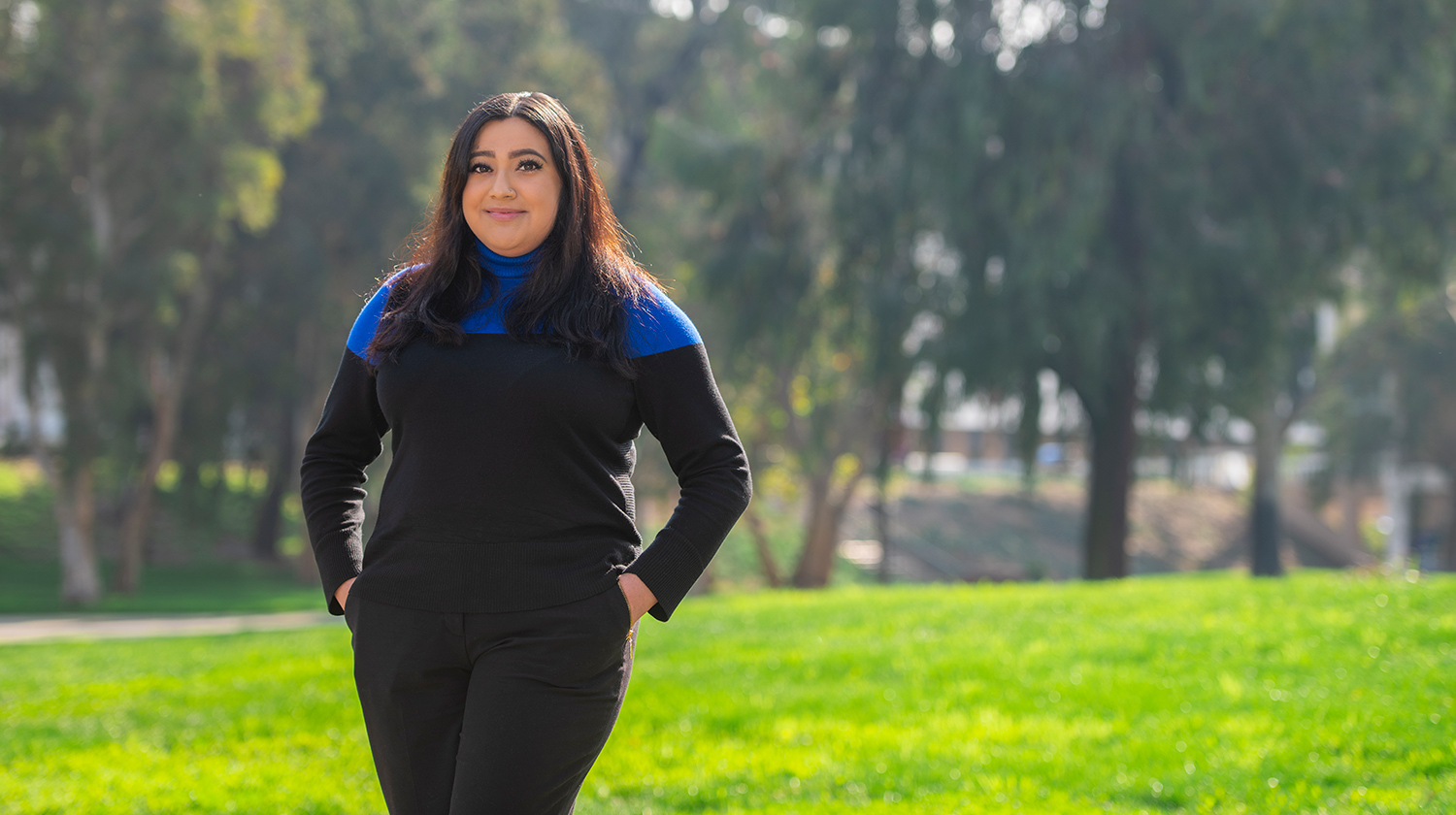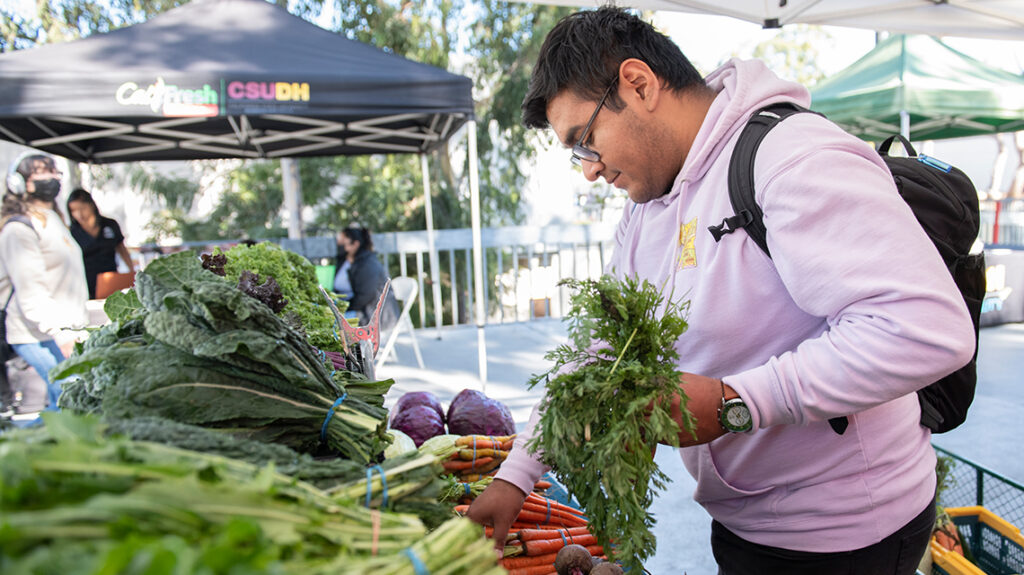
Sustainability is about more than just greenhouse gas reduction and better waste management, says Jenney Hall, lecturer in environmental studies at CSUDH.
“Sustainability is ultimately about perpetuating systems. When you perpetuate systems, you must ask if those systems are serving everyone,” Hall says. “I think that our unique perspective is incorporating social justice, environmental justice, and climate justice into that transition.”
Integrating sustainability with social and educational inequities is critical to CSUDH’s approach, says Ellie Perry, manager of the university’s Office of Sustainability. “We’re a small, under-resourced institution that caters predominantly to under-served communities of color, [which] bear the biggest burden of our failure to embrace sustainable living.
“The fact that Dominguez Hills is a leader in this space puts people on notice that this is what sustainability is supposed to look like.”
October marks Sustainability Month, promoted annually by the Association for the Advancement of Sustainability in Higher Education (AASHE) to raise awareness about innovative sustainability solutions. CSUDH became a member of AASHE in 2017, and since that time has gone from unranked to a STARS Silver Institution in 2020. Perry expects the university to reach STARS Gold early next year.
STARS evaluates criteria that include campus and public engagement, sustainable operations, planning and administration, and innovation and leadership. “After Gold, there’s Platinum,” says Perry. “It’s not a linear progression from rating to rating. It’s exponential, and it gets harder. Right now, not a single CSU school is Platinum. If we work hard enough, we can be the first.”
This year’s Sustainability Month comes amid CSUDH’s rapid progress toward its sustainability goals. In 2022, the administration included sustainability as one of the core institutional values of its new Strategic Plan. It also adopted an aggressive new Climate Action Plan in August that puts the university on the road to carbon neutrality by 2045 or sooner.
Read about CSUDH’s new rooftop solar panel installations.
CSUDH has also embraced similarly aggressive sustainability goals approved in early 2022 by the CSU Board of Trustees, which has taken notice of the university’s unique record of achievement. “The specific projects of the CSUDH Office of Sustainability provide a model for aligning broader sustainability goals campuswide with supporting critical student services that bridge the equity gap,” says Tamara Wallace, CSU sustainability programs manager.
What distinguishes CSUDH’s approach to sustainability is its foundation in meeting the needs of communities most at risk from the effects of global climate change. This includes a campus farm where students learn sustainable agriculture techniques.
All produce grown on the farm supports students experiencing food insecurity. CSUDH is also a recognized charter of the national Food Recovery Network.
Sustainability at CSUDH also has significant buy-in from the faculty, and not just from the usual suspects like earth science. Perry says professors in philosophy, sociology, and health sciences, among others, have incorporated sustainability into their curricula.
“Faculty from a surprisingly wide variety of disciplines now see sustainability as fundamentally important not only to our survival as a species but to the success of the university and the work they do each day,” says Perry.
Sustainability is not a zero-sum effort, Perry explains. It weaves through everything we do, like championing diversity and equity. Everyone has a role to play.
“Why are we so good at sustainability?” Perry asks. “We don’t treat it as just an environmental problem. It’s a catalyst for all the other challenges we face socially and economically.”


